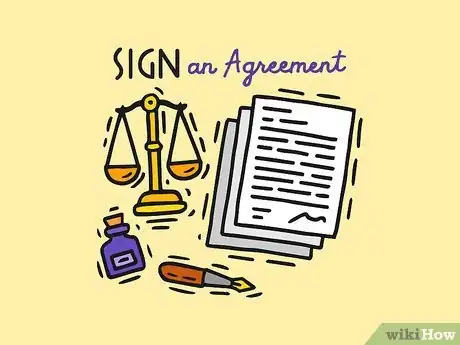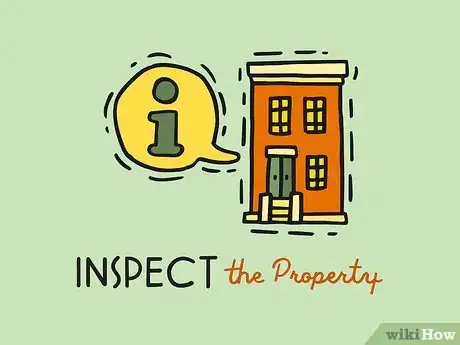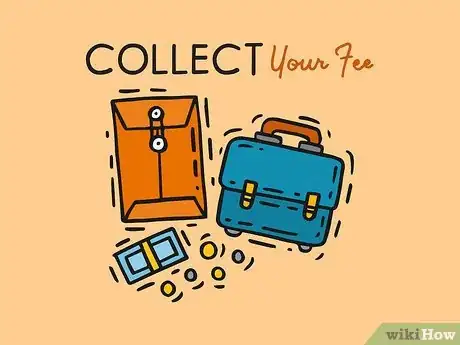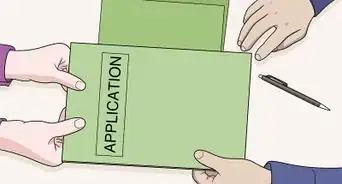wikiHow is a “wiki,” similar to Wikipedia, which means that many of our articles are co-written by multiple authors. To create this article, 9 people, some anonymous, worked to edit and improve it over time.
wikiHow marks an article as reader-approved once it receives enough positive feedback. In this case, 83% of readers who voted found the article helpful, earning it our reader-approved status.
This article has been viewed 83,007 times.
Learn more...
Finders work as intermediaries, connecting sellers to buyers of property, and are not realtors. In some housing markets, particularly those that are extremely depressed, some homeowners are willing to pay finder’s fees to people who are able to connect them to buyers. Keep in mind that in hot property markets, it will probably be almost impossible to do this kind of work because homeowners will have an easy time finding buyers.
Steps
Finding Property
-
1Look for property that is for sale by owner. Real estate that is represented by a realtor will not work if you are trying to get a finder’s fee. The realtor essentially takes your place as the intermediary. You might find properties for sale by owner on websites like Craigslist or other classified real estate sites. You also might find property by driving around neighborhoods that you think have potential.
-
2Contact the owners of the property. Some owners are explicit that they will offer a finder’s fee in their advertisement. Call or email them for the exact details of what they would pay and how they are hoping to move forward. Others are not explicit about whether they would pay you-- contact them to ask if they would pay a finder’s fee.[1]Advertisement
-
3Sign an agreement. Make sure that you have in writing that the customer agrees to pay you the agreed upon fee once you have provided the service and the property has successfully been sold.[2] Always negotiate your rates before you begin to locate properties. It might be a set amount, or it could be a percentage. Keep in mind that that without a contract, you probably have no legal recourse if the seller decides that he or she does not want to pay your fee.[3]
-
4Inspect the property. For those owners who have given you permission to try and find a buyer, inform them that you want to see what their property is like so that you have all the available information. As you’re touring the site, take notes about the features. Ask permission to take photos.
Looking for Buyers
-
1Reach out to the investors and potential homebuyers you know. Tell them about the property and show the photos. Talk to them about what they are interested in purchasing so that you can keep looking for their criteria in the future.[4]
-
2Set up a website. Create a website with the properties for which you are attempting to find interested buyers. Include well-written descriptions of the homes and photographs.
-
3Advertise the properties. Post them on the classified websites with links to the descriptions and photographs on your website. Consider posting the information in the local Sunday paper real estate section.[5]
Setting Up a Successful Sale
-
1Introduce the interested buyer to the seller. If all goes well, you have facilitated a sale. Hopefully your work is done at this point. If the sale falls through, however, you’ll be back to work finding a potential buyer to introduce to the seller.
-
2Collect your fee. If your introduction was successful, you will be getting paid. Depending on how you have created your written agreement, you will probably get paid when the sale goes through.[6]
-
3Continue talking to other interested buyers and sellers. After the introduction, your work is done. Now you need to be moving on to the next groups of buyers and sellers.
Community Q&A
-
QuestionHow can I do this without a license to practice real estate?
 Community AnswerA licensing board cannot regulate the agreement between two non-licensed individuals.
Community AnswerA licensing board cannot regulate the agreement between two non-licensed individuals. -
QuestionWhere are some good leads in finding homes for sale by an owner?
 Community AnswerCraigslist is a good place to look for listings that have been unsuccessfully sold for many weeks or months.
Community AnswerCraigslist is a good place to look for listings that have been unsuccessfully sold for many weeks or months. -
QuestionIs it a good idea to join an online group that provides videos and support for getting started (for a fee)?
 Community AnswerYes, it is. Joining a community of other property locators can give you a good opportunity to find advice on getting started.
Community AnswerYes, it is. Joining a community of other property locators can give you a good opportunity to find advice on getting started.
References
- ↑ http://www.wsj.com/articles/SB10001424052748703632304575451771429580114
- ↑ http://www.mishconnewyork.com/news/briefings/clarifying_entitlement_to_finders_fees_in_new_york_real_estate_transactions_05_2015
- ↑ http://www.entrepreneur.com/formnet/form/667
- ↑ http://www.wsj.com/articles/SB10001424052748703632304575451771429580114
- ↑ https://placester.com/real-estate-marketing-academy/real-estate-advertising-ideas-new-agents/
- ↑ http://www.entrepreneur.com/formnet/form/667





































































